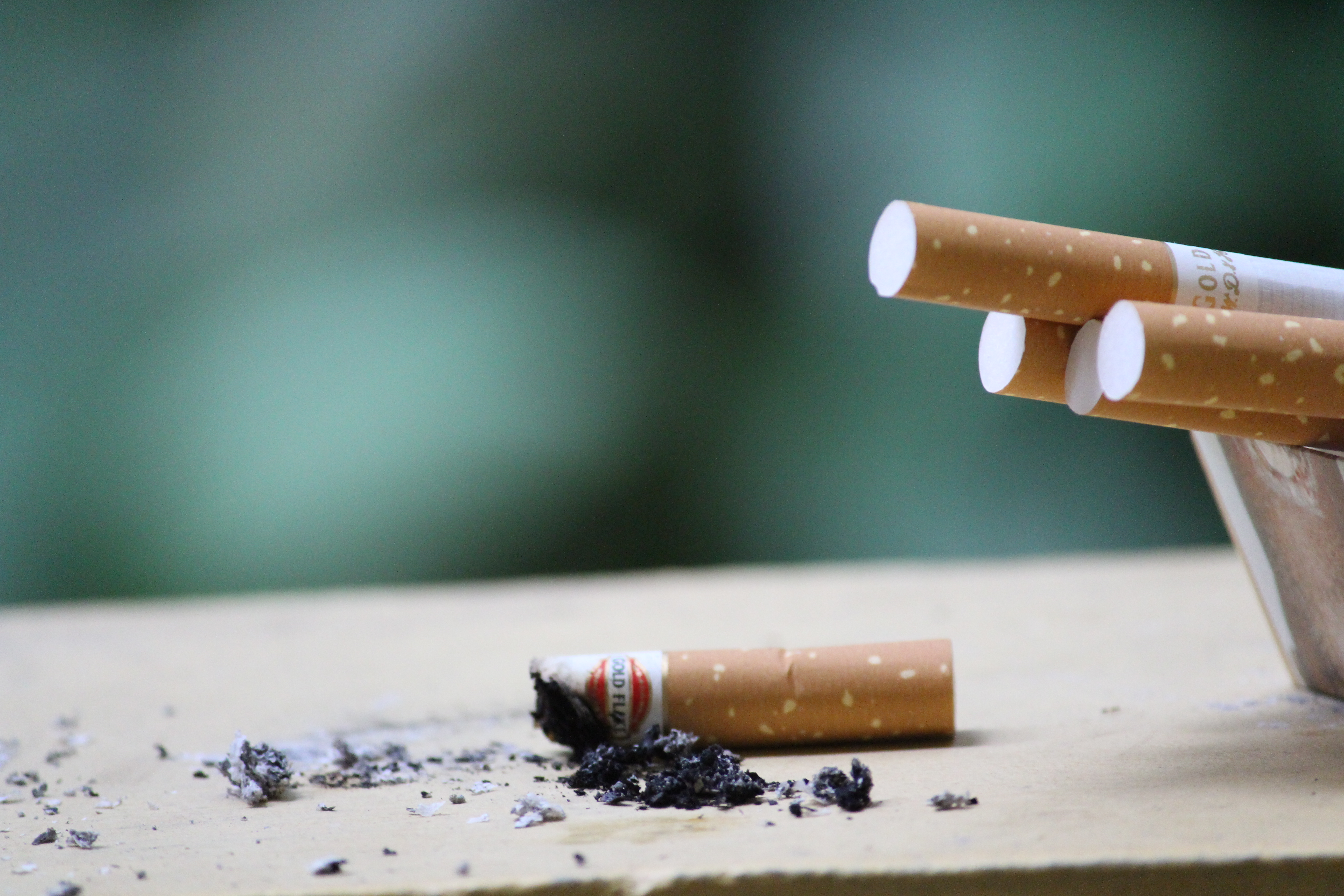Cigarette butts are more than mere litter; environmental and health groups are just now appreciating the seriousness of the butt problem, from bio-accumulation of poisons up the food chain to damage to commercial fisheries and water supplies.
Health Hazards
A recent study showed that cigarette waste easily meets standardized tests for city and state agencies to label a substance as toxic waste. This hazardous material persists in the environment for some time and is often ingested by aquatic creatures, wildlife, and pets, not to mention small children, who suffer serious health problems as a result. Cigarette filters are made from cellulose acetate, a plastic that can break into smaller pieces, but will never biodegrade or disappear. What’s worse is that the filters themselves are a sham. They offer no health protection and are simply a marketing device to give the appearance that a cigarette is somehow safer.
A study from the Centers for Disease Control and Prevention on small children who had ingested cigarette butts concluded that one-third of them exhibited symptoms of illness such as spontaneous vomiting, nausea, lethargy, gagging, and flushing. Cigarette butts leach toxins into the water and kill or injure various forms of wildlife. In addition, the plastic parts of cigarette butts can be ingested by fish, birds, whales and other marine animals. According to the Surfrider Foundation, cigarette butts are the most frequent item collected during the group’s beach cleanups. Discarded cigarettes are also a major cause of fires.
The good news is that smokefree beach laws help reduce butts on beaches by 45% according to the Audubon Society.
Economic Costs
The cleanup costs are immense – the city of San Francisco has estimated that it spends $11 million per year cleaning up butts. The city has proposed a first of its kind fee on tobacco retailer licenses to help recover the cost of cleanup. We expect more cities and states to label cigarette butts as toxic waste and to pursue policy approaches to address this serious environmental problem. A study published in the April 2011 issue of Tobacco Control, estimated that “tobacco product litter (TPL)” comprises 22 to 36 percent of all visible litter. Estimated removal costs range from $3 million to $16 million for major cities and municipalities.
A May 2009 study published in the International Journal of Environmental Research and Public Health stated, “Several options are available to reduce the environmental impact of cigarette butt waste, including developing biodegradable filters, increasing fines and penalties for littering butts, monetary deposits on filters, increasing availability of butt receptacles, and expanded public education. It may even be possible to ban the sale of filtered cigarettes altogether on the basis of their adverse environmental impact. This option may be attractive in coastal regions where beaches accumulate butt waste and where smoking indoors is increasingly prohibited.”





